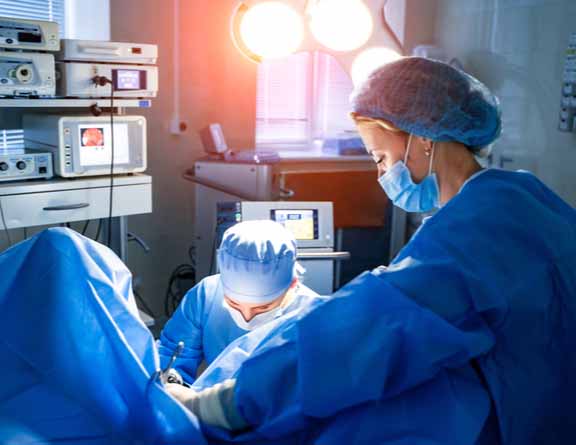
Hapur
USFDA Approved Procedures
Minimally invasive. Minimal pain*.
Insurance Paperwork Support
1 Day Procedure


Treatment
The doctor typically does a physical examination to assess the condition of the testicle and scrotum in patients who display the signs and symptoms of testicular torsion. To confirm the disease and rule out other conditions, they may suggest a few diagnostic tests. The common diagnostic tests before treatment are as follows:
It’s vital to remember that testicular torsion requires prompt treatment because delays in care might cause the testis to become permanently damaged. It’s crucial to get medical help immediately if your testicle suddenly becomes really painful.
Testicular torsion is a medical emergency that must be treated immediately to prevent long-term damage to the testis. Reestablishing blood supply to the injured testicle is the main objective of the treatment. Testicular torsion can be treated in a variety of ways, including the ones listed below:
Medication: Painkillers may be suggested to treat the discomfort brought on by testicular torsion.
Manual distortion: In order to restore blood flow, the testicle is manually untwisted during manual detorsion. In order to prevent re-twisting, it is typically performed under anesthesia and may call for employing cutting-edge methods.
Surgery: In some rare cases, surgery is suggested to untwist the testicle and restore blood flow. This can include a surgical testicle fixation surgery called an orchiopexy.
It is crucial to note that timely treatment is important when treating testicular torsion since any delay in treatment might result in lasting testicular damage. If treatment is delayed for an extended period of time, the afflicted testicle may need to be removed. If you have sudden and severe pain in your testicle, seek medical assistance immediately.
Delivering Seamless Surgical Experience in India
Your safety is taken care of by thermal screening, social distancing, sanitized clinics and hospital rooms, sterilized surgical equipment and mandatory PPE kits during surgery.
A dedicated Care Coordinator assists you throughout the surgery journey from insurance paperwork, to free commute from home to hospital & back and admission-discharge process at the hospital.
Our surgeons spend a lot of time with you to diagnose your condition. You are assisted in all pre-surgery medical diagnostics. We offer advanced laser and laparoscopic surgical treatment. Our procedures are USFDA approved.
We offer free follow-up consultations and instructions including dietary tips as well as exercises to every patient to ensure they have a smooth recovery to their daily routines.
If testicular torsion is left untreated, it can lead to permanently damaged or dead testicles that must be removed.
The common risk factors for testicular torsion are underlying bell clapper deformity, undescended testicle, trauma, and prior intermittent torsion. Testicular torsion is the spontaneous twisting of the spermatic cord, which compromises testicular blood flow. It is a rare condition in 1 in 4000 males younger than 25 years, rarely in newborns.
Not always. If one testis undergoes and dies, the anterior pituitary stimulates the remaining healthy testis to secrete more testosterone and form more sperm. In such a case, the man remains fertile. In some rare cases, the sperm count decreases following torsion, increasing the risk of fertility.
If testicular torsion is left untreated, it can lead to permanently damaged or dead testicles that must be removed.
Here are some questions that you must ask your urologist before testicular torsion treatment to have a better understanding of the procedure and to know the risks and complications associated with it:
It’s important to ask any questions that you have before the procedure so that you fully understand the risks, benefits, and expected outcomes of testicular torsion surgery.
.svg)
.svg)
.svg)